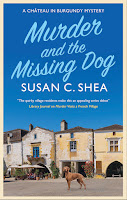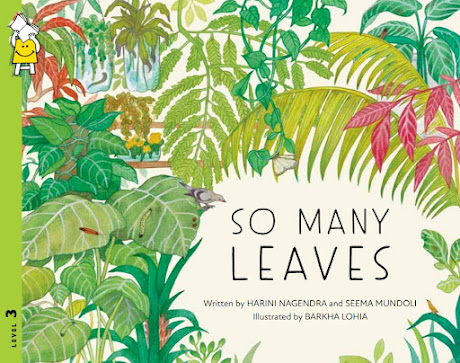Action, comedy, dialogue, sex, or violence - which of
these do you find the most difficult to write and why?
I think of writers as a cross
between the court jester and Achilles. The court’s entertainer regales the
court, and he has full immunity. No topic is denied. The Greek hero is a fearless
warrior, invulnerable, except for his heel because his mother had not covered
it when she dipped her infant son into the waters of the river Styx.
Writers, like the joker,
juggle and balance a variety of elements of storytelling, aware that all eyes are
on their techniques and performance. Writers, like Achilles, can wage war
against social issues.
Action. I do
write action, but I keep it to a minimum. I’ve met Lee Child, and he’s a
pleasant man, and very tall, but I could never write his Jack Reacher. I read
Jack, and wonder how many times a human being can get punched in the head and,
like the Timex watch, keep on ticking. As a nurse in my former life, I can tell
you most men are wusses. There’s a world of difference between a splinter and
passing a twelve-pound bowling ball called a baby.
My characters prefer to think
their way out of a situation. Physical confrontation is the last resort. As for adrenaline
and Mission Impossible scenes, I can’t write car chases because I can’t drive
stick. Cue: Author Humiliation Reel.
Comedy.
Humor dates the fastest of all writing. Think of sitcoms we now view as cringe-worthy
because they are homophobic or lack diversity. Go farther back in time, and
you’ll see tastes change rapidly for different reasons. The slapstick of Laurel
& Hardy or Chaplin once thrived because films lacked sound. Risqué and
witty dialog abounded in pre-Code films because they were made against the repressive
backdrop of the Hays Code. Context matters.
My version of comedy uses the
straight man vs. the funny man, but I exploit context and the social mores of
the day, as you see here from The Big Lie:
“Okay, I’m the man of the
house, but set me straight on something here, Tony.”
Armed with flowers, we stood
there in the street. “What now? The neighbors are watching us.”
“When we first talked about
your niece, you said you needed to ask your mother for permission. Is it
because your sister and niece live in her house?”
“That’s half of it.” Tony
looked embarrassed, and it was the first time in all the time I’d known him he
couldn’t look at me. He took a breath. “She is old-school, meaning she’s
particular about who she lets into her house. Emphasis here is her house.”
He looked at me while I did
the mental calculations. “This is because I’m Irish?”
“Because you’re Irish.”
I shook my head in disbelief.
“Anyone else she’s particular about?”
Tony didn’t hesitate. “Take
your pick. Blacks. Jews. Where do we start?”
“Question isn’t where we
start, Tony. It’s where does it end?”
Dialog. Talk
reveals character, and it moves the pace and plot. I work hard at dialog
because it is like a musical score. Each character’s use of language says
something about their personality, education, and view of the world. Here’s an
exchange from my short story, “Back in the Day.”
“Private show? Connie, I really
don’t like these private shows. I know the money is good, but I worry that
things’ll get out of hand.” Ray looked down at his two tickets and swept them
into one, pocketing them.
“Now, your Sis can take care of
herself. I took care of you for years and I understand that you’re trying to
make up for it, but I’ll be all right. And besides, I have Big Bill.” Connie
tilted her feet into a pair of silver heels that made her walk the skyline.
“Big Bill is a good man, but these
men have money. You know that. You also know that if they get hungry they’ll
want to eat.” Ray stood there brotherly.
Mae West hips had nothing on Connie
when she walked across the room, not that they would affect Ray. “Now, look
here, Ray. I’ve got my own mind. You’re right. They have money and they should
have manners, too. If any of those Harvard boys get any funny ideas that Big
Bill can’t correct himself, I’ll just slap the eyebrows off any one of those
overgrown brats. It isn’t Christmas and nobody is going to undo the wrapping
unless I say so. Got it?”
Sex. Admit
it: we all read the dog-eared pages of Jackie Collins and Harold Robbins novels
as kids. As Cole Porter sang, “Let’s Do It,” and with experience, we learn some
do it well and some remain forever inept. I prefer to imply sex, the way older
films did. A door closes, or clothes are picked up the morning after. Sex is often
comical and often made more serious than it is.
“You think Phillip will open up
more?”
“I do. Give it time. But be ready
to be disappointed.”
“Disappointed?”
“Yep.” Vera stopped for a sip.
Leslie did the same. The coffee was strong. “Phillip is like the winter weather
report. You hear all the hype in the forecast. When the storm happens, all you
get is a few inches that’ll leave you wondering if it was worth all the
publicity.”
Violence. In
real life, violence is brutal, ugly, and it often happens extremely fast. I’ve
seen it on the street, and I’ve seen it in the hospital. If and when I write
it, I am either matter-of-fact and clinical about it, or I imply it. It’s a dark
place I know I can write well but I prefer to leave alone. The world is already
an ugly place.
Write what you want, and do
the best you can.
In your mind, it will never
be perfect.
You will always offend
someone.
Ow, my heel hurts.

























